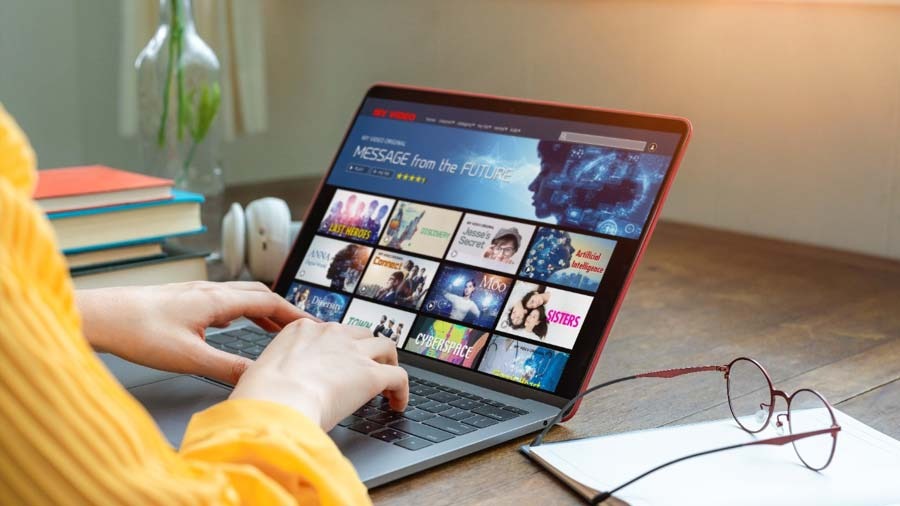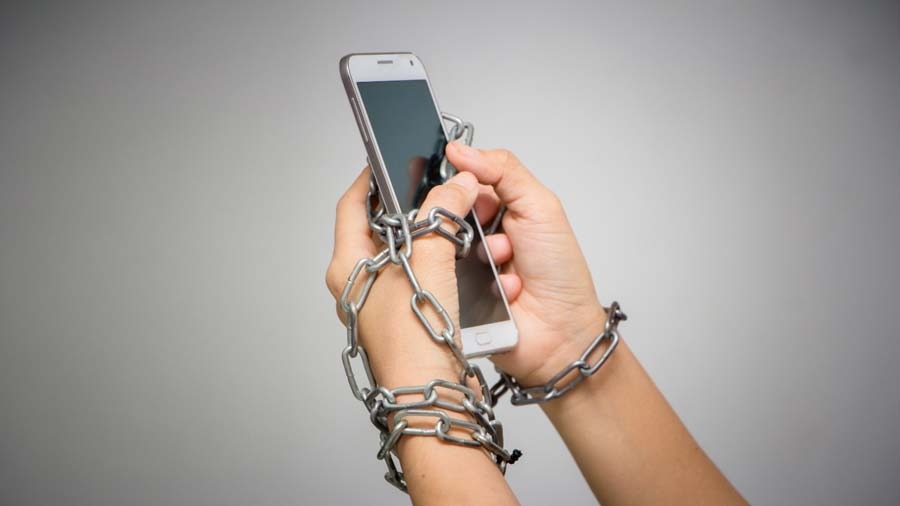Every level of technological advancement has brought with it some blessings and some vices, and we have written pages on this topic in school as essays. Nevertheless, we have not been very prudent when dealing with these vices in our real lives. Screen time overload is one such example. We have willingly surrendered ourselves to the enslavement traps of the electronic communication devices.
Numerous instances can be found in history when new inventions have gone through a life cycle of being feared or of attracting scepticism, then being accepted, then being widely accepted, then being overused and the wheel kept turning until it was obliterated.
Electronic communication devices which interact through screens are no exceptions. When they were introduced, they generated concerns, but as they travelled through the different stages of being accepted and eventually celebrated, they now rule our lives. We wake up to look at the smallest kid of the family, the phone, we then pamper the middle children, the laptops and tablets, and soon we cater to the eldest child, the TV. Interestingly, we have so mastered our caregiving skills that many a time we simultaneously practice interaction with all the three without any conscious effort.
Screening the screen time
Screen time refers to the amount of time spent in performing diverse online activities using digital devices. Screen time includes using digital devices for education, work, leisure and entertainment. Looking for information for a school project on Wikipedia, drafting emails on Outlook, scrolling through reels of unknown people on Instagram, browsing through the Netflix recommendations, buying from online stores – all these and more encompass screen time.

Screen time includes using digital devices for education, work, leisure and entertainment
ShutterstockLoads of research findings have already established the negative impact of screen time overload. Unless we completely lack basic observation skills, we can discern quite easily the impact on ourselves and on people around us. The negative effects range from poor concentration, difficulty in establishing face-to- face connections, poor sleeping habits, increased experience of negative emotions, so on and so forth.
Why do we like what we like?
Okay, let us cut ourselves some slack! It is not just our fault that we are getting drawn to the devices, but rather it is the enchanting designs of these platforms which are seducing us. A research article from Harvard Medical School states how these seductive digital pursuits appear to activate the brain’s reward system. It adds that all virtual games and social media work on what’s called a variable reward system, which is exactly what you get when you go to a gambling arena and pull a lever on a slot machine. It balances the hope that you’re going to make it big with a little bit of frustration, and unlike the slot machine, a sense of skill needed to improve. It requires a fully developed robust self-control system to save oneself from this trap.
We think that these services we have access to are free but they are not, we are paying them with our attention and handing our vulnerable selves to them. From being convinced to feel fat to developing political views that do not permit tolerance, we are under the influence of digital subjugation 24/7. An average person is bombarded with 50,000 to 100,000 words a day and these words are shaping their lives and opinions without their cognisance. We are not in control of what information we are processing and how and that of course is not good news!

From being convinced to feel fat to developing political views that do not permit tolerance, we are under the influence of digital subjugation 24/7
ShutterstockAdam Gazalley from the University of California says, just like junk food there is junk information at your service. A lot of the information is better off not being consumed. We intend to eat healthy to nourish our body, similarly, we need to consume healthy information to nourish our mind. Like there are meal times to consume food, we need specific times to consume information and it cannot be following the anytime-anywhere principle.
What can we do differently?
We play varied roles in the social structure we live in and we can contribute as discrete units in multiple levels towards bringing positive change. It is worth mentioning here that the aim is to work with technology, not against it. We are fortunate to witness the transformation which digital technology is bestowing to the world and how it is helping build communities, generate employment and foster transparency. With some awareness, some self-reflection and some practice we can reap the best benefits of digital technology without being under its bewitching influence.
As empowered adults:
- Practicing moderation is key. Like alcohol or smoking, we can limit the amount of exposure to screens. Creating a family media agreement and device contract to set realistic rules could be a good practice.
- Developing self-awareness and practicing self-reflection. Try to look deeper and find answers to the question, ‘what are you getting out of spending long hours in front of the screens’ – is it validation, or some excitement. Try thinking why you are compelled to buy a number of products without any actual use of the same. Are you buying them because you need them or using them because you bought them?
- Take the time to understand the features of devices and platforms and infer how they might impact the lives of adults and children positively and negatively.
As influential organisations:
- As part of organised communities like schools, clubs and cultural associations, create safe space for holding conversations around this topic
- Have regular discussions and sessions around digital technology and safe digital behaviour by involving tech and behaviour experts.
As societal change agents:
- With a huge percentage of the population working on digitalisation of organisations around the world, it is essential that they question the ethics of the business they are working for and advocate integration of humane tech principles in product design.
- Recognise the mental health red flags caused by overuse of devices and platforms and build a narrative to bring about regulatory changes in the way they operate.
- Join organisations calling for a ban on surveillance advertising.
As an ending note, it would be worth encouraging you to watch The Social Dilemma documentary (available on Netflix) and also to keep an eye on The Social Dilemma website to keep abreast of new developments and conversations. As Maryanne Wolf, director, UCLA Centre for Dyslexia, Diverse Learners & Social Justice, says, innovation is not guilty, it is innovation without respect, knowledge or examination of what is being disrupted and diminished that we should be vigilant about.
Soumi Das is a clinical psychologist-turned-learning and development professional. She is currently a programmes specialist for Leadership Development programmes at Saint Gobain, Paris.
*********************
The public awareness programme organised by Kolkata Psychiatry Club in collaboration with My Kolkata (The Telegraph Online) will be held at Kala Mandir from 6pm on August 15, 2022. ‘Screen Addiction: A Myth or A Reality?’ is a free event, and seats will be allocated on a first-come-first-seated basis.








